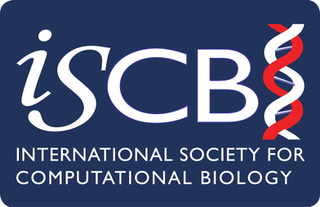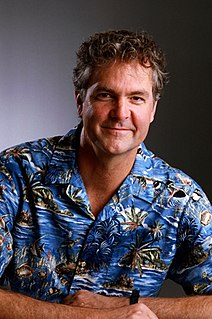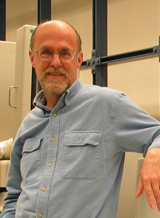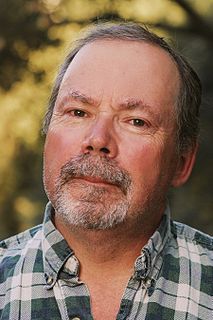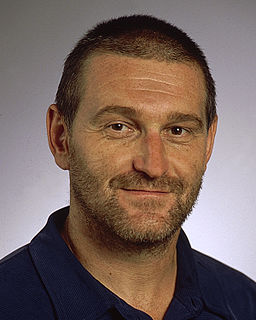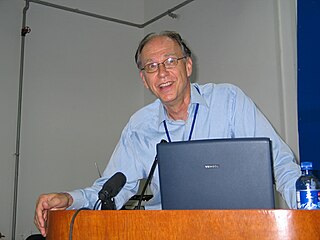
Michael Spencer Waterman is a Professor of Biology, Mathematics and Computer Science at the University of Southern California (USC), where he holds an Endowed Associates Chair in Biological Sciences, Mathematics and Computer Science. He previously held positions at Los Alamos National Laboratory and Idaho State University.
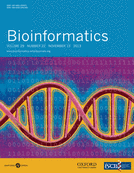
Bioinformatics is a biweekly peer-reviewed scientific journal covering research and software in computational biology. It is the official journal of the International Society for Computational Biology (ISCB), together with PLOS Computational Biology. Authors can pay extra for open access and are allowed to self-archive after 1 year.
The ISCB Overton Prize is a computational biology prize awarded annually for outstanding accomplishment by a scientist in the early to mid stage of his or her career. Laureates have made significant contribution to the field of computational biology either through research, education, service, or a combination of the three.
The ISCB Accomplishment by a Senior Scientist Award is an annual prize awarded by the International Society for Computational Biology for contributions to the field of computational biology.
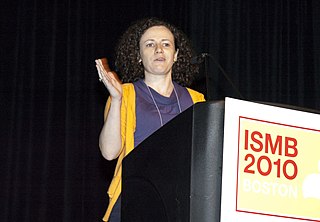
Olga G. Troyanskaya is a Professor in the Department of Computer Science and the Lewis-Sigler Institute for Integrative Genomics at Princeton University and the Deputy Director for Genomics at the Simons Center for Data Analysis at the Simons Foundation in NYC. She studies protein function and interactions in biological pathways by analyzing genomic data using computational tools.

Ruth Nussinov is a Professor in the Department of Human Genetics, School of Medicine at Tel Aviv University and is the Senior Principal Scientist and Principal Investigator at the National Cancer Institute, National Institutes of Health. Nussinov is also the Editor in Chief for the journal PLOS Computational Biology.
Jill P. Mesirov is an American mathematician, computer scientist, and computational biologist who was the associate director and chief informatics officer at the Eli and Edythe L. Broad Institute of MIT and Harvard. She also holds an adjunct faculty position at Boston University.

Lior Samuel Pachter is a computational biologist. He works at the California Institute of Technology, where he is the Bren Professor of Computational Biology. He has widely varied research interests including genomics, combinatorics, computational geometry, machine learning, scientific computing, and statistics.
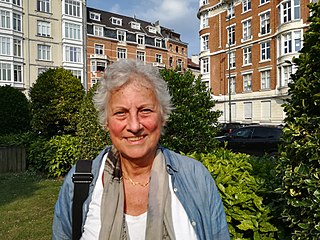
Shoshana Wodak is a computational biologist and an organizational leader in the field of protein-protein docking. Wodak was one of the first people to dock proteins together using a computer program.

Janet Kelso is a South African computational biologist and Group leader of the Minerva Research Group for Bioinformatics at the Max Planck Institute for Evolutionary Anthropology.
The ISCB Innovator Award is a computational biology prize awarded annually to leading scientists who are within two decades post-degree, who consistently make outstanding contributions to the field, and who continue to forge new directions. The prize was established by the International Society for Computational Biology (ISCB) in 2016 and is awarded at the Intelligent Systems for Molecular Biology (ISMB) conference. The inaugural recipient was Serafim Batzoglou.

Anna Tramontano was an Italian computational biologist and chair professor of biochemistry at the Sapienza University of Rome. From 2011 to 14 she was a member of the Scientific Council of the European Research Council (ERC). She was an associate editor for the journal Bioinformatics from 2005 until 2016 editing papers in the area of structural bioinformatics.

Michal Linial is a Professor of Biological Chemistry at the Hebrew University of Jerusalem and Director of The Sudarsky Center for Computational Biology. She was elected a fellow of the International Society for Computational Biology (ISCB) in 2016 for outstanding contributions to the fields of computational biology and bioinformatics.
William Raymond Pearson is professor of biochemistry and molecular Genetics in the School of Medicine at the University of Virginia. Pearson is best known for the development of the FASTA format.
Satoru Miyano is a Professor at Human Genome Center at the University of Tokyo. He was awarded fellowship of the International Society for Computational Biology (ISCB) in 2013 for outstanding contributions to the fields of computational biology and bioinformatics.
Xiaole Shirley Liu (刘小乐) is a Professor in the department of biostatistics and computational biology at the Dana–Farber Cancer Institute and Harvard T.H. Chan School of Public Health. She was educated at Stanford University where her thesis committee included Douglas Brutlag, Jun S. Liu, Russ Altman, Patrick O. Brown and Rob Tibshirani. She was elected a Fellow of the International Society for Computational Biology (ISCB) in 2019 for her “outstanding contributions to the fields of computational biology and bioinformatics”.
